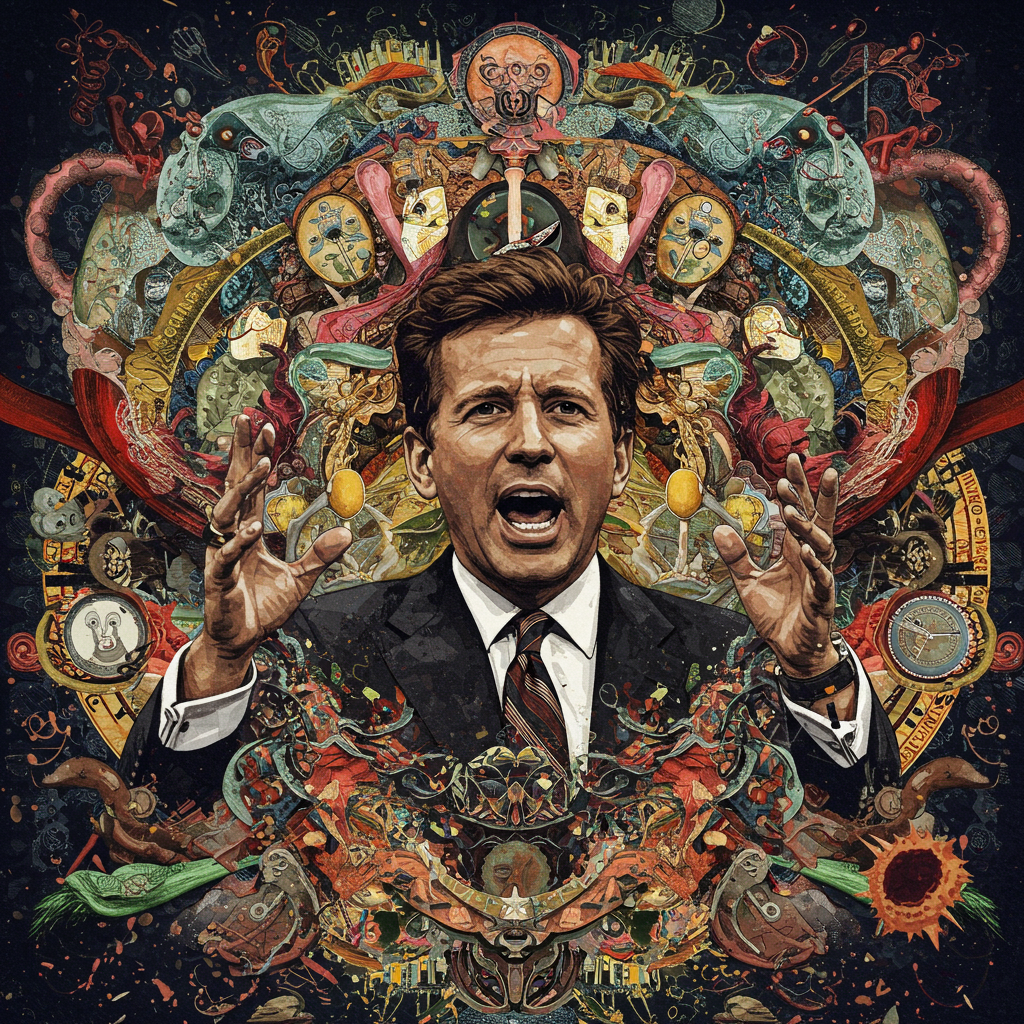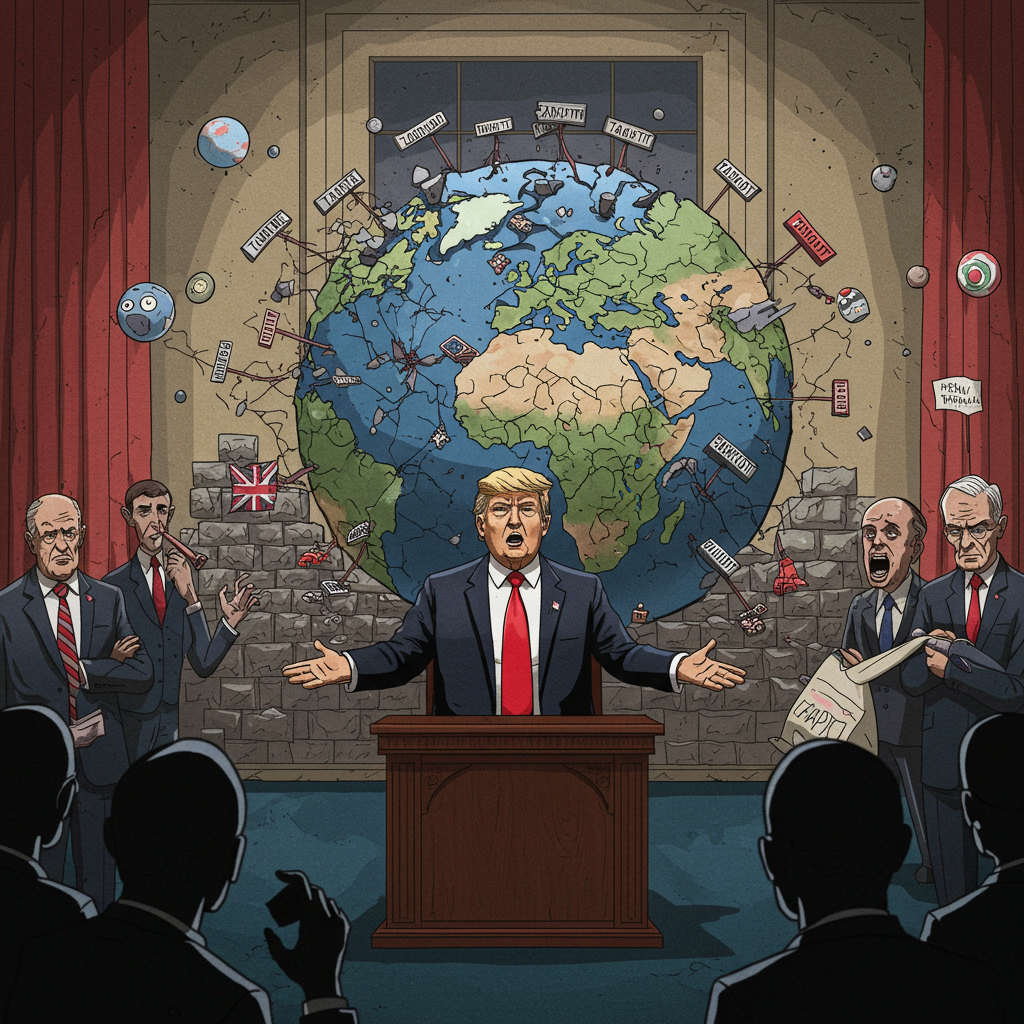Robert F. Kennedy Jr.’s recent actions targeting messenger RNA (mRNA) technology have ignited a fierce debate among health experts. Scientists and public health advocates worldwide warn his efforts could severely jeopardize global health security and future medical innovation. This critical analysis delves into the profound implications of undermining a technology that proved life-saving during an unprecedented global crisis.
The Transformative Power of mRNA Technology
The COVID-19 pandemic accelerated scientific breakthroughs at an incredible pace. Among the most pivotal innovations were vaccines built from messenger RNA (mRNA) molecules. These groundbreaking jabs were designed to instruct the human body how to recognize and fight off the SARS-CoV-2 virus. Their rapid development and deployment were truly unprecedented.
The impact of these mRNA vaccines was nothing short of monumental. By late 2021, these advanced immunizations were estimated to have saved approximately 7.7 million lives globally. An American health-care charity, the Commonwealth Fund, further estimated that vaccines collectively saved most of the 3 million American lives before 2023. This remarkable efficacy showcased mRNA technology’s capacity to protect populations and mitigate severe disease rapidly.
RFK Jr.’s Direct Actions: Unpacking the “Attack”
Despite this proven track record, Robert F. Kennedy Jr. has actively sought to curtail mRNA research and development. His stance is characterized by a long-standing hostility towards this technology. On August 5, he announced a significant move: the U.S. Department of Health and Human Services was halting funding for 22 mRNA vaccine projects. This action alone amounted to nearly US$500 million in withdrawn support.
Earlier in May, Kennedy also reportedly canceled funding for Moderna’s development of an mRNA pandemic influenza vaccine. These specific funding cuts are not isolated incidents. Experts view them as part of a broader, orchestrated agenda. This agenda actively undermines mRNA technology through disinformation and policy changes, creating significant global concern.
A Far-Reaching Threat to Future Readiness
The withdrawal of such substantial U.S. funding has far-reaching consequences. Virologist Angela Rasmussen of the University of Saskatchewan’s Vaccine and Infectious Disease Organization highlights a key concern. She emphasizes that Canadians, and indeed global citizens, must understand these policy changes will directly affect them. mRNA technology offers critical advantages: its rapid production capability and ease of modification. This adaptability is essential for combating new viruses and evolving strains.
This advanced capability is particularly vital in light of emerging threats. The H5N1 bird flu, for instance, is increasingly viewed as a potential next pandemic threat. Delays in creating vaccines for new viruses like H5N1 could be catastrophic. Without robust, continuous funding, the global scientific community’s ability to respond swiftly to future health crises is severely jeopardized.
The Erosion of Trust and Global Ramifications
The U.S. stands as one of the largest funders of medical research worldwide. Consequently, any defunding of mRNA vaccine research will inevitably stall development globally. Matthew Miller, Canada Research Chair in Viral Pandemics at McMaster University, confirms this. He stresses that such actions threaten Canada’s access to this vital technology, despite its own domestic efforts.
Kennedy’s claims about mRNA vaccine safety are widely refuted by the scientific community. Miller points to “an incredible amount of real-world safety data.” This data comes from billions of doses administered during the COVID-19 pandemic. He characterizes Kennedy’s notions as “disjointed from reality.” Dr. Cora Constantinescu, a Calgary pediatric infectious diseases specialist, warns of the “significant damage” caused by high-ranking U.S. officials spreading disinformation. This can profoundly erode public trust in government and create widespread confusion.
Beyond Infectious Diseases: mRNA’s Broader Promise
The consequences of this disinformation are already spilling over into Canada. Constantinescu predicts a “vaccine confidence crisis,” providing “more fodder to the anti-vaccine activism movement.” This issue extends beyond just mRNA vaccines. It can also taint public perception of non-mRNA vaccines. This poses a serious danger, especially as Canada and the U.S. are currently experiencing outbreaks of vaccine-preventable diseases like measles.
Moreover, mRNA technology’s promise extends far beyond infectious diseases. Its innovative approach is showing incredible potential in areas like cancer treatment. Researchers are exploring mRNA-based therapies to train the body’s immune system to target cancer cells. Undermining this foundational research could stifle progress in multiple critical medical fields. It is not merely about future vaccines; it impacts the entire landscape of modern medicine.
Canada’s Stance and the Global Outlook
Despite the U.S. funding withdrawals, Pfizer Canada and Moderna Canada have stated that the immediate availability of updated COVID-19 vaccines in Canada should not be affected this fall. Canada’s Public Health Agency of Canada (PHAC) acknowledged that the pandemic reinforced the need for domestic vaccine development capacity. Canada has an agreement with Moderna for domestic research, development, and manufacturing, including a facility in Laval, Quebec.
However, PHAC confirmed that Canada’s current “pandemic influenza readiness agreements” are primarily with GSK, Sanofi, and Seqirus. Notably, none of these agreements involve mRNA vaccines. Rasmussen underscores a crucial difference. She notes that non-mRNA vaccines would take significantly longer to scale up for large populations during a pandemic. This disparity highlights the ongoing global reliance on and potential vulnerability to policy shifts affecting mRNA development.
Ensuring Scientific Progress and Public Health Security
The stakes are incredibly high when public health policy is influenced by unfounded claims. The overwhelming consensus from the scientific and medical community underscores the critical importance of mRNA technology. Its proven life-saving capabilities during the COVID-19 pandemic stand as a testament to its value. Continued investment in scientific research and development, particularly in innovative fields like mRNA, is paramount for global health security. Combating disinformation and ensuring evidence-based decision-making are essential. Only through supporting rigorous science can nations effectively prepare for and mitigate future health threats.
Frequently Asked Questions
What is mRNA technology and why is it considered vital?
mRNA (messenger RNA) technology uses molecules that teach our cells to make specific proteins. For vaccines, this protein typically mimics a part of a virus, training the body’s immune system to recognize and fight off the real pathogen. This technology is vital due to its rapid development capabilities, ease of modification for new strains, and proven efficacy in saving millions of lives during the COVID-19 pandemic. Its adaptability is crucial for quick responses to emerging global health threats.
What specific actions has RFK Jr. taken against mRNA research?
Robert F. Kennedy Jr. has taken concrete steps to defund mRNA research. Most notably, he announced the U.S. Department of Health and Human Services was halting funding for 22 mRNA vaccine projects, amounting to nearly US$500 million. He also reportedly canceled funding for Moderna’s development of an mRNA pandemic influenza vaccine. These actions are viewed by experts as part of a broader effort to undermine mRNA technology and public trust in vaccines.
How might RFK Jr.’s policies impact global health and future pandemics?
RFK Jr.’s policies are seen as significantly impacting global health by stalling crucial research and development. As the U.S. is a major funder of medical research, withdrawing hundreds of millions from mRNA projects will delay the creation of new vaccines for emerging threats like H5N1 bird flu. Experts warn of a potential “vaccine confidence crisis” due to the spread of disinformation. This could lead to decreased vaccination rates for various diseases, weakening global pandemic preparedness and overall public health security worldwide.




